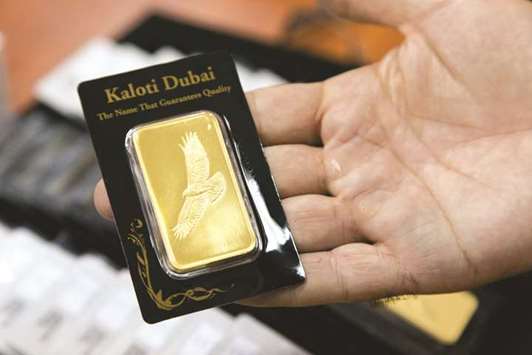A former Ernst & Young partner, who says he blew the whistle on suspected irregularities at Dubai gold refiner Kaloti, sued the accounting firm for suppressing his findings and failing to protect him from possible retaliation.
Amjad Rihan’s employers “failed to engage seriously or at all with these concerns” or to take “any adequate steps” to protect him “from adverse consequences because of his desire to do (what he regarded) as the right thing,” his attorneys said in a lawsuit filed in London. When Rihan decided it was not safe for him to stay in Dubai, E&Y offered no assistance to help him work outside the emirate, the lawyers said.
“We are aware of the lawsuit and plan to vigorously defend any allegations made against EY,” an official for the firm said in an e-mail. A spokesman for Leigh Day, the law firm representing Rihan, confirmed it had been filed at the High Court in London on Thursday.
Kaloti managing director Tarek El Mdaka says in an undated statement posted on the company’s website that previous media reports about the matter are full of contradictions and inaccuracies. A spokeswoman for Kaloti didn’t immediately return a call and email from Bloomberg about the claim filed by Rihan.
“Any non-compliance during the initial audit stage was related to specific documentation anomalies, which were swiftly rectified, and not to any findings of conflict gold within the supply chain,” El Mdaka says in the statement. “There is no evidence that Kaloti was involved in money laundering; or any of our clients for that matter.”
An audit by Ernst & Young found that Kaloti didn’t report $5.2bn in “potentially suspicious transactions” in 2012 and accepted gold plated in silver without proper paperwork, Global Witness, a human-rights advocacy group based in London, said in a 2014 report. The $5.2bn were all cash transactions and were not reported to the Dubai or UAE authorities, Rihan’s lawyers said in the claim.
All cash transactions mentioned in the Global Witness report “were conducted for clients that were onboarded by Kaloti and have full compliance KYC documentation,” Kaloti said in its website statement, using shorthand for know-your-customer due diligence.
Kaloti also reported purchasing over 57 tonnes of gold from suppliers in Sudan in the period Rihan audited the company even though only 46.1 tonnes was produced in the country in that time, his lawyers said. Some of Kaloti’s intermediaries in Sudan were subject to sanctions imposed by the US government’s Office of Foreign Assets Control, they claim.
Kaloti was established in Dubai in 1988 as a small jewellery wholesaler and the following year began buying gold from local markets. By 2000 it was trading gold bullion and in 2005 in a sign of its global ambitions, struck a partnership with Swiss refiner Valcambi SA, one of the world’s largest, to produce customised kilo bars.
Kaloti expanded to Hong Kong, Turkey and Singapore in the next five years and by 2010, said it had received Dubai Good Delivery status for its kilo bars. Dubai’s Multi Commodities Centre developed that certification, modelled on the London Bullion Market Association’s Good Delivery List. The status was revoked in 2015 after the company failed to meet conflict-free sourcing standards.
Ernst & Young had a legal obligation to report any suspicious activity and failed to do so, Rihan’s lawyers contend. The auditing firm’s decision to not do so in order to ensure “the maintenance of good relations with the Dubai authorities” in essence “amounted to bribery” under the UK’s 2010 Bribery Act, the claim reads.
The executive chairman of the Dubai Commodities Center back in 2014 dismissed the Global Witness report, saying it was based on information from a “disgruntled former E&Y employee.”

An employee displays a small gold bar in u201cKaloti Dubaiu201d packaging at the Kaloti Jewellery factory in Sharjah June 30, 2013. A former Ernst & Young partner, who says he blew the whistle on suspected irregularities at Dubai gold refiner Kaloti, sued the accounting firm for suppressing his findings and failing to protect him from possible retaliation.
